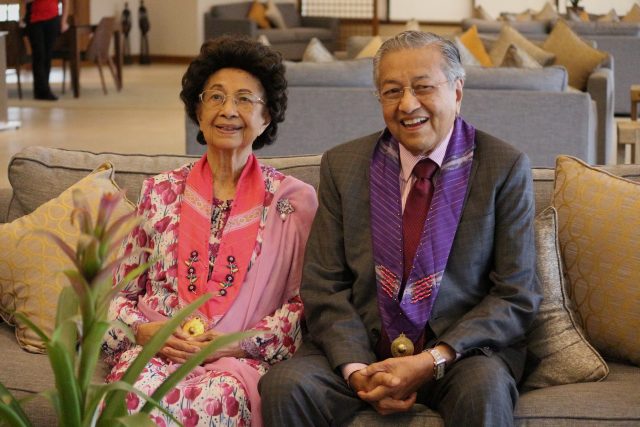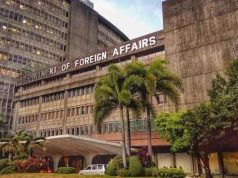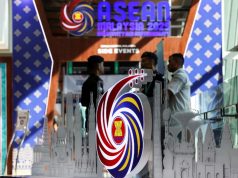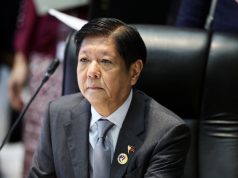
MANILA – Individual economies should be left to decide for themselves how to improve competitiveness despite the mantra of globalization that had held sway over nations in the past two decades, Mahathir Mohamad, Malaysia’s former prime minister and honorary president of Perdana Leadership Foundation, told Philippine financial executives during their annual summit on Friday.
“The essence of competition is that the competitors should not be so different in terms of their capacities,” Mr. Mahathir told his audience at the 49th FINEX Conference 2017, themed “Breaking barriers to competitiveness in the ASEAN Financial Sector” in Fairmont Makati hotel.
He said that even the 10 members of the Association of Southeast Asian Nations (ASEAN) have varied degrees of development.
“If you ask these… groups of countries to compete, you will know who will win – obviously, the strongest, the biggest, the richest, the most developed will achieve success,” Mr. Mahathir said.
He noted that even the advocates of a borderless world, where capital and profit can move freely, have reservations about who crosses their borders.
“If they can have these reservations, surely the less developed should have their own reservations. They should be able to protect themselves,” Mr. Mahathir said.
Without protection, less developed countries will be exploited, their resources taken out of their borders, he warned.
He said even Malaysia, which is more developed than its neighbors, needed protection not against other ASEAN states, but from those outside the region.
He said when his country was trying to be a car manufacturer, it had to compete with Germany, Japan and South Korea that are advanced in the automotive field.
“We should provide for some handicap, but very many people are against any form of protection even for infant industries. We think otherwise,” he said.
“In order to protect ourself, we need to make use of the taxation policies of the country. If we can impose higher tax for the advanced country then we can probably succeed in our ambition.”
He said at that time, Malaysia was told that there should be no discrimination, that it should open its doors to importation without restrictions, and do away with taxes on imports.
“But taxes are not really meant to earn money for the country. It is also meant to protect the market to make sure that the people in the market compete on even terms. And so it was that we decided to give certain tax advantage to our infant industry,” he said.
He said Malaysia was “condemned” for that action and eventually had to give in to the idea that there should be equal taxation whether the country is exporting or importing, hence, its attempt to manufacture a national car did not succeed.
Mr. Mahathir also recounted how Malaysia was able to compete with Singapore in the sale of luxury goods by making them duty-free, drawing even Singaporeans to patronize Malaysian watches and pens instead.
Malaysia has since become one of the more developed countries of Southeast Asia and ranks second only to Singapore in the region in terms of competitiveness in the World Economic Forum’s Global Competitiveness Report 2017-2018. That roster showed Singapore second and Malaysia 23rd among 137 economies covered.
Mr. Mahathir said it is important for a country to develop the “correct” infrastructure to develop internally.
He said Malaysia provided investors with the necessary supply of power and water, telecommunications and physical infrastructure, including an 800-kilometer expressway extending to Singapore in the south and Thailand in the north.
Foreign direct investments (FDI), he said, remain key to improved competitiveness.
“By opening up the country to foreign direct investment, we were able to attract a lot of capital, a lot of know-how, a lot of technology into the country,” Mr. Mahathir recalled. “Very quickly, we learned more about industrialization.”
His remarks, and the FINEX summit, come in the wake of latest official data last Oct. 10 showing that net FDI inflows fell by an annual 16.5% in the seven months to July.
Eduardo V. Francisco, investment banking group president of BDO Capital and Investment Corp., said “if supposedly FDI is not coming in, why is the stock market going up so much?”
The Philippine Stock Exchange index on Friday capped a week of record highs that was disrupted only on Oct. 11, Wednesday. The benchmark index is now up 23.5% up year-to-date.
“You don’t want to invest in the Philippines but our market is doing so well, so you might also lose your opportunities to invest and lose money because the locals know something that you don’t,” Mr. Francisco said.
Seasoned investors, he noted, have learned to read beyond President Rodrigo R. Duterte’s typically harsh rhetoric and discern that the government’s policies have remained steady and the country’s macroeconomic fundamentals strong.
For Guenter Taus, president of the European Chamber of Commerce of the Philippines: “Will I still be here for 31 years if the political situation was that bad?”
“We have political issues everywhere else in the world.”









